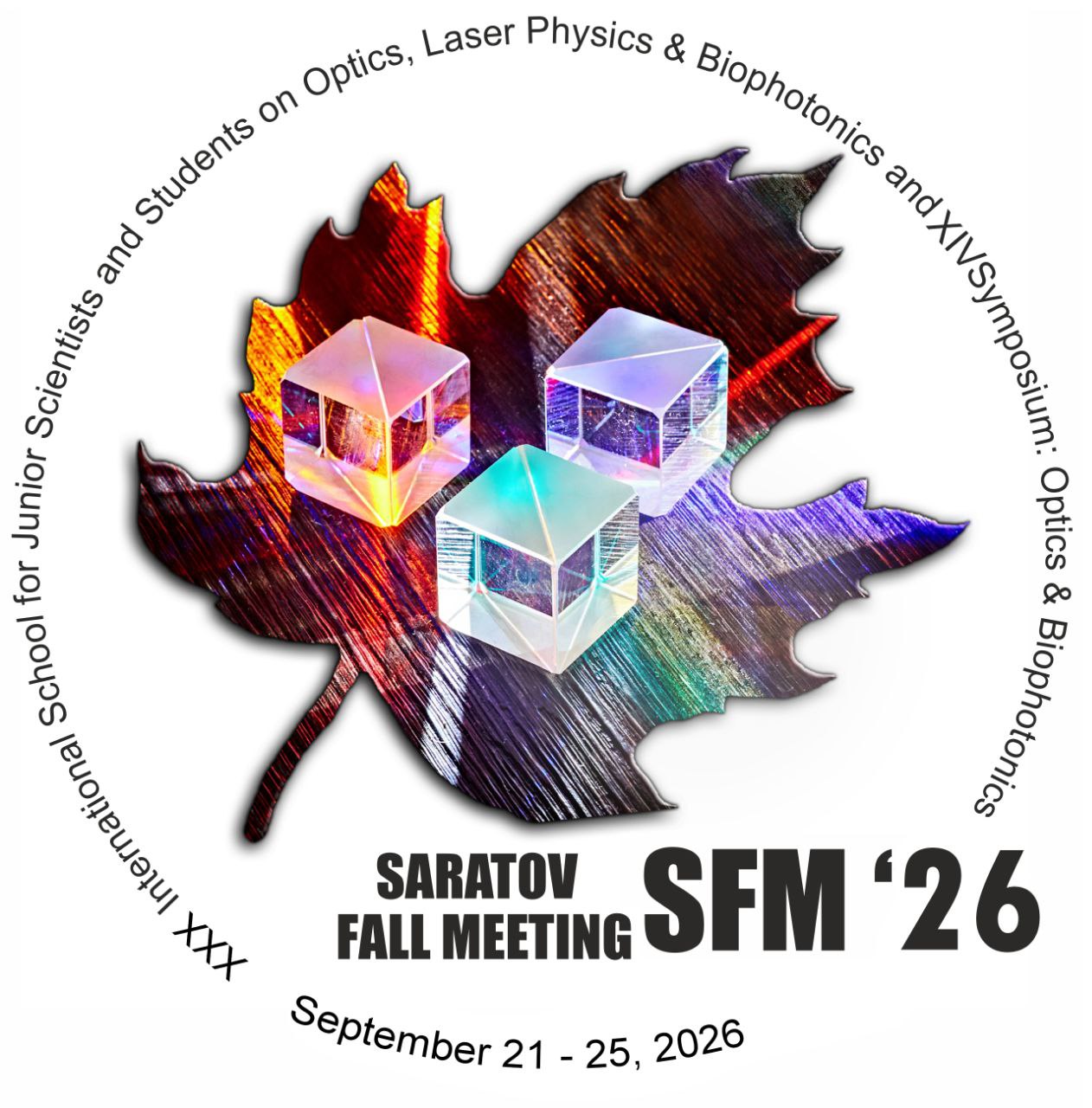Development of biological systems for targeted drug delivery in the field of personalized therapy
Oksana A. Mayorova, Saratov State University, Russia
Roman A. Verkhovskii, Saratov State University, Russia
Ekaterina S. Prikhozhdenko, Saratov State University, Russia
Daniil N. Bratashov, Saratov State University, Russia
Abstract
Currently, the development of new drug delivery systems is an urgent task. Systemic injection of drug-loaded micro- and nano-sized containers can increase circulation time, induce controlled drug release, and thus improve patient comfort and adherence to treatment. Despite significant advances in this area, targeted delivery of drug carriers is often random. The body has an innate immune defense that quickly recognizes and destroys foreign objects. Thus, nanocarriers can be captured by macrophages before these carriers reach the region of interest. In addition, toxicity and limited biodegradability are significant disadvantages for many of these approaches. The developed biological carriers, for example, platelets, can bypass the immune barrier, making them attractive objects for creating biological systems for targeted drug delivery in personalized therapy.
The primarly purpose of platelets is to prevent blood loss in places of vascular damage. In addition, platelets can interact with circulating tumor cells, forming aggregates around the metastatic cell and promoting their adhesion to the vascular endothelium. In this study, the main goal is to create a "Trojan horse" based on platelets to treat metastatic forms of tumor diseases. The nanosized magnetic particles (FeNP), the surface of which has been modified with a protein (BSA) labelled with a fluorescent dye FITC, have been developed as drug models. The ζ-potential (-20.28 ± 1.18 mV) and small size (160.46 ± 2.76 nm) of FeNP-BSA(FITC) nanosystems allow them to penetrate platelets without causing its aggregation. Platelet internalization was studied using CLSM and flow cytometry. Shortly, it is planned to conduct studies to assess the degree of platelet activation by captured nanoparticles by interacting with circulating tumor cells and healthy cells using confocal microscopy and flow cytometry.
This work was supported by the Russian Science foundation (project no. 18-19-00354P).
Speaker
Mayorova Oksana A.
Saratov State University
Россия
Report
File with report
Discussion
Ask question


